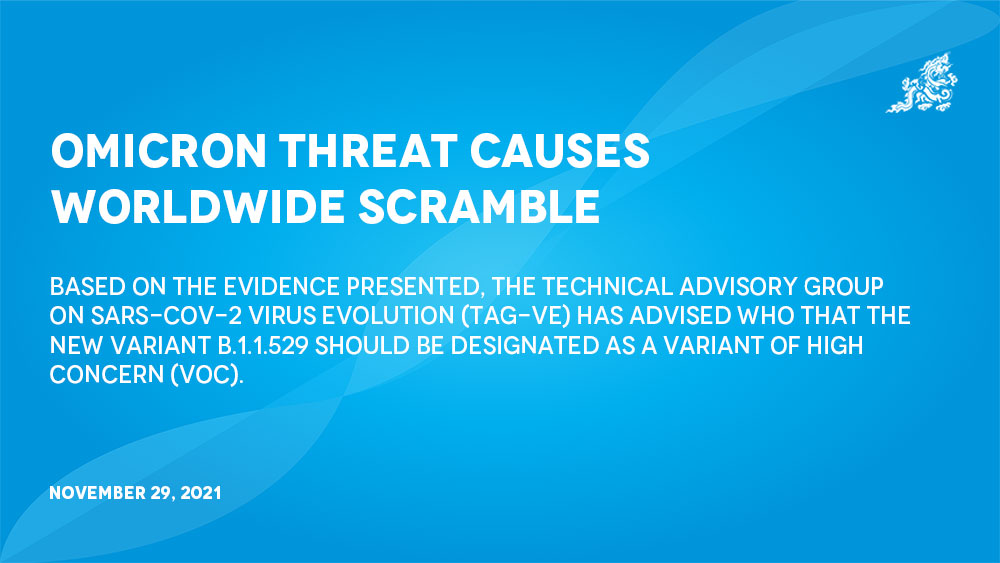Nima Wangdi
Based on the evidence presented, the Technical Advisory Group on SARS-CoV-2 Virus Evolution (TAG-VE) has advised WHO that the new variant B.1.1.529 should be designated as a variant of high concern (VOC).
The TAG-VE started assessing the new variant on November 26 after it was first reported to WHO from South Africa on November 24.
WHO has notified the countries to enhance surveillance and reportage of detection of the new variant.
Individuals are also reminded to take measures such as wearing masks, washing hands, physical distancing, improving ventilation, avoiding crowd and getting vaccinated to reduce the risk of Covid-19.
BBC yesterday reported that 13 air passengers who arrived from South Africa in Amsterdam, Netherlands have tested positive for a new variant yesterday. They are among 61 passengers who tested positive for coronavirus.
First discovered in South Africa, the variant has now been detected in Britain, Germany, Italy, Denmark, Belgium, Botswana, Israel, Australia and Hong Kong.
Many scientists have red-flagged the new variant given the ‘alarming’ high number of mutations on the virus’s B.1.1.529 spike proteins that have potentially made the virus more resistant to vaccines, more transmissible, and with greater potential to cause severe disease.
Scientists are calling the B.1.1.529 variant the ‘most heavily’ mutated version of the SARS-CoV-2 virus discovered so far, with the potential to be more transmissible than the Delta variant and more effective in evading the immune response provided by the vaccines that are currently available.
According to Internet news sources, the US is restricting non-US citizen travellers from eight African countries like Botswana, Zimbabwe, Namibia, Lesotho, Eswatini, Mozambique and Malawi while some other countries are imposing travel restrictions.
In Asia, Singapore is barring arrivals from the region and Japan tightened border controls for those arriving from South Africa. India is stepping up tests for international arrivals, media reported.
However, officials from the Prime Minister’s Office (PMO) said Bhutan has not imposed any additional travel restrictions. “We’re already on heightened preventive measures and surveillance.”
The country still strictly follows 14-day and 21-day mandatory quarantine protocols.
A PMO official said that the countries imposing travel restrictions are those who reopened travel recently.
The official also said, recently, PMO notified the public to remain cautious and prepared with detection of the new variant in South Africa.
In an earlier interview, National Immunisation Technical Advisory Group (NI-TAG) member Dr Sonam Wangchuk said, because SARS-CoV-2 virus has effectively established human-to-human transmission by now, any new variant now will be more transmissible than the previous variants.
He said that given the stringent and conservative measures in place, Bhutan is not directly threatened by the new variant for now.
“However, this doesn’t mean that we are safe from its implications,” he said.
Edited by Tshering Palden


